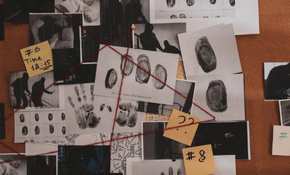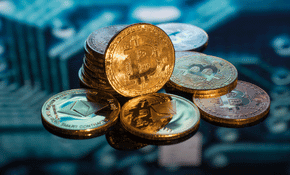Five persons were arrested, including past and present members of parliament, including European Parliament Vice President Eva Kaili. They are accused of corruption and money laundering. Investigators suspect Qatar bribed officials in an attempt to influence decisions.
According to the prosecutors' office, Belgian police detained a European Parliament vice president and four others in connection with an investigation into corruption involving World Cup host Qatar (9 December).
Officers seized four additional suspects for interrogation before arresting Greek socialist MEP Eva Kaili. According to an AFP source close to the matter, all four were either Italian nationals or were born in Italy.
According to the source, Kaili is the partner of one of the four, a parliamentary assistant with the European Parliament's Socialists and Democrats group.
Following reports of Kaili's detention, Nikos Androulakis, the president of the Greek Socialists (PASOK), declared on Twitter that she had been expelled from the party.
Belgian Police Searched 16 Properties in Brussels
Kaili's father is said to have been carrying the suitcase containing £750,000 in cash when he was detained by detectives as he exited a Sofitel in Brussels.
The €600,000 was reportedly discovered in Panzeri's home, with extra cash discovered at Kaili's father's home, his hotel room, and the residence Kaili and Giorgi shared. According to Reuters, Panzeri's lawyer has not commented on the accusations. The total amount of cash discovered in the raids was €1.5 million. Following her arrest, Kaili was imprisoned at the Jail de Saint-Gilles [fr] for five days before being transferred to a prison in Haren, Brussels.
In addition to the large quantity of money, investigators confiscated computers and mobile phones and ordered the IT resources of ten parliamentary staff members to be blocked in order to prevent data destruction. Searches have also been conducted in Italy.
Arrest warrants filed in Italy include suspicions of Moroccan payments.
The Moroccan government did not reply to Reuters' request for comment.

MEP Eva Kaili Denies Qatar Bribery
At the European Parliament, Greek MEP Eva Kaili denied involvement in an alleged bribery ruse involving World Cup host Qatar.
"[Eva Kaili] declares her innocence and that she has nothing to do with bribery from Qatar," her lawyer, Michalis Dimitrakopoulos, told Greek television on Tuesday.
There was undisputed proof that "every move, contact, and statement made by Eva Kaili regarding Qatar was made in execution and application of the official policy of the European Union," he added in a subsequent statement.
According to sources, the €150,000 was discovered in Ms. Kaili's residence. When asked if this was true, her lawyer replied, "I have no idea if any money was found or how much was found."
The cash was found in several locations
Prosecutors conducted a series of searches over several days and reported finding cash worth around €600,000 at the residence of one suspect, €150,000 at the flat of an MEP, and €750,000 in a bag in a Brussels hotel room.
On Tuesday, Belgian police shared a snapshot of piles of €200, €50, €20, and €10 bills.
Belgian police have published a picture of £1.3 million in cash recovered in searches on two residences and a hotel room in Brussels over the weekend.
Kaili will be tried in Belgium first but could also stand trial in Greece if the ongoing investigation uncovers evidence of money laundering; if proven guilty, she may face up to 15 years in jail, according to sources.
The incident has jolted the European Parliament and raised concerns about the behavior of other EU officials. The European Commission said on Wednesday that it will write to former EU commissioner Dimitris Avramopoulos "to gather more information" on how he represented an NGO embroiled in the scandal during a cooling-off period after he left office.
Reactions
After the incident was initially published in Belgian media, Roberta Metsola, President of the European Parliament, indicated that the European Parliament had been cooperating with an ongoing investigation without defining the nature of the probe. Metsola terminated Kaili's responsibilities and powers as a Vice-President of the European Parliament two days after the arrests. Kaili was officially dismissed as vice president by a supermajority in a vote of the whole chamber.
President Metsola said on December 12th, at the start of the first sitting of the European Parliament following the raids, that all collaboration with Qatar will be terminated. Additionally, a large and contentious air transport deal that would have granted Qatar Airways unrestricted access to the EU market was halted after the EU warned Qatar that it may have interfered with Parliament's internal debates on the pact.

Qatar warns EU corruption investigation
Qatar reaffirmed its denial of any participation in any corruption issue involving persons connected to the European Parliament, claiming that a Belgian investigation threatens to disrupt relations.
Belgian police detained four persons as part of a probe into charges that Doha showered them with cash and gifts in order to influence decision-making.
Qatar said in a statement that the inquiry and suspension of its access to the EU parliament would have a severe impact on relations and gas exports.
"The decision to impose such a discriminatory restriction that limits dialogue and cooperation on Qatar before the legal process has ended will negatively affect regional and global security cooperation, as well as ongoing discussions around global energy poverty and security," a statement issued by a diplomat from Qatar's EU embassy.
"We firmly reject the allegations associating our government with misconduct," the statement continued.
The Qatari diplomat also criticized Belgian officials for using incorrect information throughout the investigation.
"Qatar was not the only party named in the investigation, yet our country has been exclusively criticized and attacked,” the statement claimed."We have observed this week's selective condemnation of our country with great alarm.”
The Qatari Foreign Ministry dismissed any attempt to link it to the corruption investigation.
Conclusion
Politically exposed persons (PEPs) and their networks are more vulnerable to bribery and corruption. The evident and enduring lesson from the preceding is the significance of implementing appropriate internal rules, processes, systems, and controls to manage the risks provided by certain customers and scenarios.
To mitigate the risks posed by political exposure, a firm should first implement an appropriate screening tool to identify PEPs in relation to prospective customers (including the significant controllers and/or ultimate beneficial owners of corporate customers) and an ongoing monitoring function to identify where an existing customer or connected person becomes a PEP at some point during the customer lifecycle.





